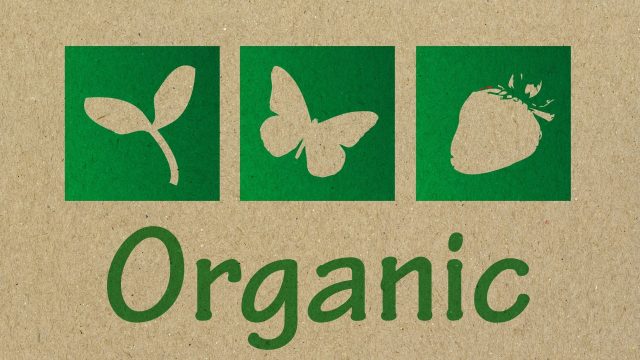28
Mar
Public Voice Keeps Organic Strong, Comment by April 1

(Beyond Pesticides, March 28, 2022) Last Chance This Spring To Tell the NOSB To Uphold Organic Integrity. Comments are due 11:59 pm EDT April 1 (No Fooling!)
The National Organic Standards Board (NOSB) is receiving written comments from the public through April 1. April 1 is also the deadline for registering for the upcoming public comment webinar on April 19 and 21, which precedes the online meeting April 26-28—in which the NOSB deliberates on issues concerning how organic food is produced. Written comments must be submitted through Regulations.gov.
As always, there are many important issues on the NOSB agenda this Spring. For a complete discussion, see Keeping Organic Strong (KOS) and the Spring 2022 issues page, where you can find Beyond Pesticides’ comments on all issues facing the NOSB at this meeting. In the spirit of “continuous improvement,” we urge you to submit comments (please feel free to use our comments on the KOS page or use language below) that contribute to an increasingly improved organic production system. Here are some high priority issues for us:
- The NOSB must insist that the National Organic Program (NOP), which is part of the U.S. Department of Agriculture (USDA) follow through with NOSB recommendations. The Organic Foods Production Act (OFPA) established the NOSB to advise the Secretary of Agriculture on implementation of the act, with special attention to the National List of approved and prohibited substances. NOP has fallen behind in implementing the recommendations of the NOSB, which threatens organic integrity.
- Organic consumers expect that organic farms will not destroy native ecosystems, so NOP must implement NOSB’s recommendation to change the current perverse regulation that incentivizes the immediate destruction of native ecosystems and conversion to organic production as a cheaper and faster option than transitioning existing conventional farmland over a three-year period.
- Organic consumers expect that organic meat and dairy products will be produced without synthetic hormones, so NOP must—as recommended by the NOSB—take oxytocin off the list of allowed synthetics.
- Now NOP has come to the organic community with a request for input concerning the priorities to be assigned to recommendations it has failed to complete. This is totally unacceptable. The organic community has spoken on these issues, but NOP has not done its job. It is improper—indeed, outrageous—for NOP to now pit segments of the organic community against one another. NOP must give higher priority to completing NOSB recommendations. It is NOP’s responsibility to just get it done.
- Cetylpyridinium chloride (CPC) is a quaternary ammonium compound (quat or QAC) that is being petitioned for use on raw organic poultry. The class of QACs includes several toxic sanitizers and disinfectants as well as the highly toxic herbicides paraquat and diquat. CPC is highly toxic, and poses a particular hazard to workers. CPC residues have been discovered on treated surfaces and poultry skin, exposing consumers to unlabeled pesticide residues. It is unnecessary in organic production, and the petition should be denied.
- The NOSB is considering a proposal limiting the use of highly soluble nitrogen fertilizers in organic production. This follows on recommendations by the NOSB in Fall 2021, prohibiting the use of stripped ammonia and concentrated ammonia as fertilizers in organic crop production. In recognition of the fact that their high solubility makes them inconsistent with organic production, which “feeds the soil, not the plant,” the Crops Subcommittee proposes to generalize the prohibition unless use is restricted to no more than 20 percent of the crop’s total nitrogen requirement. USDA has stated that it will not implement the prohibition of stripped ammonia and concentrated ammonia unless this proposal passes. The NOSB should pass this proposal to protect organic integrity.
- Biodegradable Biobased (Bioplastic) Mulch Film (BBMF) is under consideration for sunset this year. Although the NOSB will not vote on BBMF until the Fall 2022 meeting, this is part of a larger issue of the use of plastic in organic production and handling. Awareness is growing about the impacts of plastic—and the microplastic particles to which it degrades—on human health and the environment. BBMF should not be relisted. Moreover, the NOSB should initiate action to eliminate all uses of plastic in organic production and handling—including packaging.
Need help in submitting comments? Regulations.gov requires more than a single click, but it is not difficult. Please feel free to cut-and-paste language from the comments above into Regulations.gov and add or adjust the text to personalize it. See this instructional video. (Regulations.gov has changed its look since this video was made.)
Thank you for keeping organic strong!











We need to quit poisoning our planet and ourselves. This is madness!
March 30th, 2022 at 6:53 amPlease let’s keep strict and environmentmentally positive standards. Profitability and convince cannot be the bottom line.
March 30th, 2022 at 2:15 pmPlease keep the standards…it matters
March 31st, 2022 at 7:04 pmBats in my town are gone, bees are few, Monarchs too.Please take glyphosate’s off the market and stop using herbicides and pesticides to control insects because theses toxins are killing our pollinators!
March 31st, 2022 at 9:44 pmInsects are vital to help pollinate and produce quality fruits, flowers, and many other plant/animal life. Its a symbiotic relationship between the insects, humans, and our planet. Please keep Organic STRONG.
April 7th, 2022 at 10:13 am